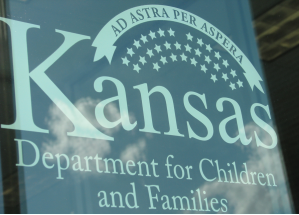By Meg Wingerter
State officials acknowledged during a legislative hearing Wednesday at the Statehouse that the organizations overseeing and placing children in foster homes may have financial conflicts of interest.

Kasey Rogg, deputy general counsel for the Kansas Department for Children and Families, told a legislative committee that the current system of bundled payments encourages the state’s private contractors to spend less on services for children in foster care. Placement agencies also have incentives to put foster children in homes that might not be appropriate, he said.
“Any business tries to cut costs,” Rogg said in written testimony. “When the private contractors and CPAs in the Kansas child welfare system try to cut costs, their interests could clash with the interests of children.”
Kansas privatized its foster care and adoption systems in 1997 after a class-action lawsuit alleged that DCF’s predecessor, the Kansas Department for Social and Rehabilitation Services, failed to adequately care for children in its custody. Some legislators have questioned the decision in the past year after several high-profile child deaths in foster care.
Two private contractors, KVC Kansas and Saint Francis Community Services, administer services for children in foster care and subcontract with child placement agencies and other organizations.
The state pays a bundled rate for all services provided for children in foster care — such as developing plans for children aging out of the system and providing respite care for families and counseling for children with mental health needs — which could push the contractors to increase their profits by using less funding for those services, Rogg said.
DCF is considering changing to a system that pays contractors based on the actual costs of services for children, but first it has to conduct audits to determine those costs, he said.
“We think the root of it is the way they are paid,” he said.
The department also is working to create an electronic tracking system to better match foster children with homes, according to Rogg’s testimony.
For example, an agency may put large numbers of children into a foster home it works with even though a foster home affiliated with another agency might be a better fit, he said. The system is scheduled to come online in January.
“We’ve had a difficult time identifying where in the system there are vacancies,” he said.
The state also allows child placement agencies to inspect the foster homes they work with, giving them an incentive to approve homes that don’t meet state standards, Rogg said. The placement agencies do the initial inspections, but DCF does follow-ups.
Most people working in the child welfare system have good intentions, he said, but the system has allowed other motives to sway the results in some cases.
“In general, the people who work in child welfare are good-hearted people,” he said. “But I have seen too many foster homes that CPAs gave a clean bill of health where my inspectors found violations.”
Lee Ann Smith Desper, director of communications for Saint Francis Community Services, said the organization is “eager” to hear DCF’s recommendations and work with them on improvements.
“DCF is always seeking to improve the foster care system in Kansas, and that’s a positive thing for all concerned,” she said in an email. “That’s the way the system should work, because ultimately, we both have the same goal: to keep families together whenever possible, while ensuring the health and safety of the child remains paramount.”
KVC Kansas didn’t immediately respond to requests for comment.
Joni Hiatt is Kansas director of programs for FosterAdopt Connect, an advocacy group that represents foster families. She told the committee the problem isn’t necessarily with the contractors themselves but with the system providing more funds to agencies when they use certain homes.
“It’s the nature of the beast. It’s not necessarily the contractor,” she said.
The state could address the conflicts by setting up an administrative agency without a financial interest in the outcome to make placement decisions, Hiatt said.
Rep. Jim Ward, a Wichita Democrat who also spoke to the committee, said he doesn’t think contractors or agencies are seeking to pad their profits at children’s expense, but some may have to “cut corners” due to limited resources.
“I think they are not getting enough money to provide the services,” he said.
Megan is a reporter for KHI News Service in Topeka, a partner in the Heartland Health Monitor team. You can reach her on Twitter @meganhartMC
